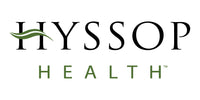The Surprising History of Oregano Oil
by Deborah Duffey

Derived from the leaves of the oregano plant, this powerful elixir has a rich history dating back thousands of years. From its origins in ancient Greece to its modern-day uses, the surprising history of oregano oil is a testament to its incredible healing properties.
The story of oregano oil begins in the Mediterranean region, where the oregano plant, scientifically known as Origanum vulgare, thrives in the warm and sunny climate. The ancient Greeks were among the first to recognize the medicinal properties of oregano, using it as a natural remedy for various ailments. It was considered a symbol of joy and happiness and was often used in ceremonies and rituals.
Oregano oil's health benefits were highly regarded by the Greeks, who believed it possessed powerful antimicrobial properties. They would use it to treat respiratory conditions, digestive issues, and infections. The word "oregano" itself is derived from the Greek words "oros" meaning mountain and "ganos" meaning joy, reflecting the plant's significance in ancient Greek culture.
As time went on, the use of oregano oil spread throughout the Mediterranean and beyond. The Romans, who valued the Greeks' knowledge, adopted oregano oil for its medicinal properties. They recognized its ability to combat infections and promote overall well-being. Oregano oil became a staple in their diet, enhancing the flavor of their culinary creations while providing numerous health benefits.
Fast forward to the modern era, and oregano oil has gained renewed attention for its potent health properties. Scientific research has confirmed what ancient civilizations intuitively knew - oregano oil is a natural powerhouse. It is rich in antioxidants, vitamins, and minerals, making it an excellent addition to any wellness routine.
One of the most well-known health benefits of oregano oil is its ability to support a healthy immune system. The oil is packed with compounds such as carvacrol and thymol, which possess strong antimicrobial properties. These compounds can help fight off harmful bacteria, viruses, and fungi, thereby boosting the body's defenses against infections. Incorporating oregano oil into your daily routine may help prevent common illnesses and support overall well-being. Using a gentle and effective supplement, such as Hyssop Health Therapy, is a great day to bring it into your everyday life.
Additionally, oregano oil has potent anti-inflammatory properties. Chronic inflammation is at the root of many diseases, including arthritis, cardiovascular conditions, and certain types of cancer. The active compounds in oregano oil have been shown to reduce inflammation in the body, potentially alleviating symptoms and improving overall health.
Oregano oil also boasts antimicrobial effects against various strains of bacteria, including antibiotic-resistant ones. This makes it a promising natural alternative to conventional antibiotics. Its ability to fight off harmful bacteria while leaving beneficial bacteria intact is a remarkable quality that sets oregano oil apart from many other remedies.
Beyond its immune-boosting and anti-inflammatory properties, oregano oil has also shown promise in promoting digestive health. It can help soothe an upset stomach, relieve bloating and gas, and support healthy digestion. Some studies suggest that oregano oil may even help combat parasites and reduce the risk of food-borne illnesses.
In conclusion, the surprising history of oregano oil takes us on a journey through ancient civilizations that recognized its remarkable health benefits. From the Greeks to the Romans and now to modern times, oregano oil has remained a powerful elixir for promoting overall well-being. Its ability to support the immune system, reduce inflammation, fight off harmful bacteria, and promote digestive health make it a truly extraordinary natural remedy. So, the next time you reach for oregano oil, remember that you are benefiting from centuries of wisdom and the healing power.
*It's important to note that while natural remedies offer promising results, they should not replace medical treatment. Consult a healthcare professional for a comprehensive evaluation and guidance.
